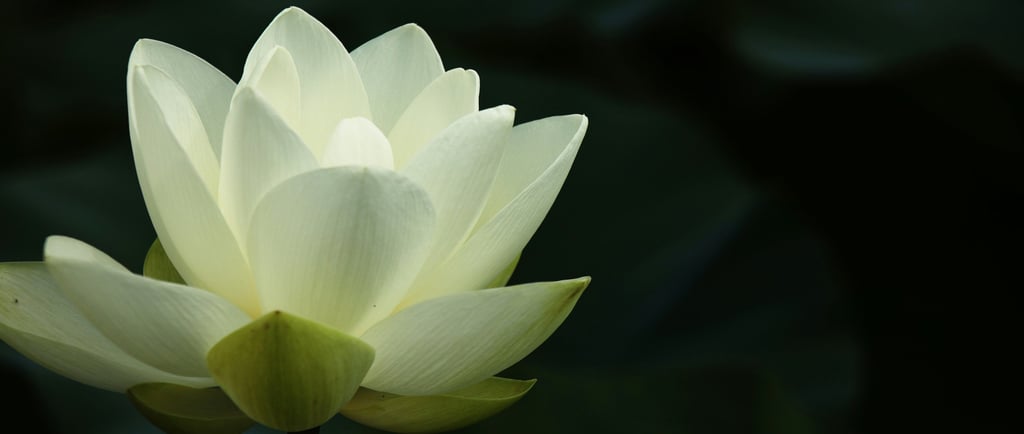The Educational Wisdom of Embracing Simplicity
In this fourth part of our exploration of the Dao De Jing, we dive into the importance of balance and non-competition in education. Laozi teaches that true greatness lies not in outshining others, but in helping to uplift them. By embracing humility and focusing on collective growth rather than individual achievement, education becomes a harmonious journey. This approach fosters a space where knowledge flows freely, and both teachers and students thrive together, guided by the principles of mutual respect and shared wisdom.
1/26/20253 min read


"I have three treasures that I cherish and hold fast:
First is compassion, second is frugality, third is not daring to be ahead of others.
Compassion enables true courage.
Frugality enables generosity.
Not daring to be ahead enables true leadership.
See the simple, embrace the uncarved block;
Lessen selfishness, reduce desires.
The Sage discards extremes, excess, and arrogance.
I have no desires, and the people return to simplicity."
— Dao De Jing (Selected passages)
Simplicity has long been a cherished virtue in Chinese culture.
When we trace this tradition to its roots, we find that one of the Dao De Jing's core teachings — "See the simple, embrace the uncarved block; lessen selfishness, reduce desires" — stands at its heart.
Simplicity and the Nature of Desire
To truly understand the virtue of simplicity and frugality, we must first examine their counterpart — desire.
In traditional thought, the "six desires" refer to our sensory appetites: sight, sound, smell, taste, touch, and thought.
These natural desires are innate. However, the "desires" that Laozi urges us to curb are not our basic needs — they are excessive, artificial cravings amplified by social and external influences.
The French philosopher Jean-Jacques Rousseau insightfully wrote in Émile:
"Our natural desires are few and limited; they are tools for preserving our freedom and survival.
All the desires that enslave and destroy us come from elsewhere; nature did not endow us with them. We adopted them in violation of nature's intentions."
Look at nature:
Tigers eat sheep, sheep eat grass.
The tiger does not slaughter all the animals just to flaunt its strength.
The sheep does not devour the entire meadow out of greed.
Because natural desires are self-regulating, the ecological balance is preserved.
Life flourishes.
But human desires are different.
Without guidance, our desires are like a river — a small drop of pure water from a snow mountain can grow into a raging, destructive flood if left unchecked.
Lessons from History: The Case of King Zhou of Shang
In Chinese history, we have the story of Jizi, who foresaw the downfall of the Shang dynasty.
Observing that King Zhou had started using ivory chopsticks, Jizi warned that this seemingly minor luxury foretold greater extravagance — and ultimately, ruin.
King Zhou ignored such warnings.
He indulged increasingly in lavish feasts and luxurious living, culminating in the infamous "Lake of Wine and Forest of Meat," leading to the Shang dynasty's collapse.
The lesson? Unchecked desires begin small but lead to great disasters.
This is why early education is critical:
Teachers and parents must prepare children before external temptations awaken excessive desires.
Over-reliance on material rewards to motivate children, for example, is a grave mistake.
It plants the seeds of greed that, once grown beyond control, can lead to tragedy.
If education strays from the principles of simplicity, bitter consequences are inevitable.
Leading by Example: The First Step of Education
To teach children to live simply, educators and parents must first cultivate simplicity within themselves.
This aligns with Laozi’s teaching:
"I have no desires, and the people return to simplicity."
The great educator and former president of Peking University, Cai Yuanpei, set a shining example: Despite holding high office, he never purchased property, choosing instead to live his life in rented homes. He was praised as "the academic giant and the moral model of his time."
Cai's personal integrity helped cleanse the culture of extravagance among Beijing’s privileged youth.
It shows us that self-cultivation is always the first step in true education.
In today’s world, where consumer culture constantly stimulates desire, role models are more vital than ever. But regardless of how society changes, the Dao remains unchanged: True happiness and fulfillment come not from excess, but from simplicity and inner peace.
This is why we must continue to draw on the wisdom of the Dao De Jing for personal cultivation and for nurturing the next generation.
